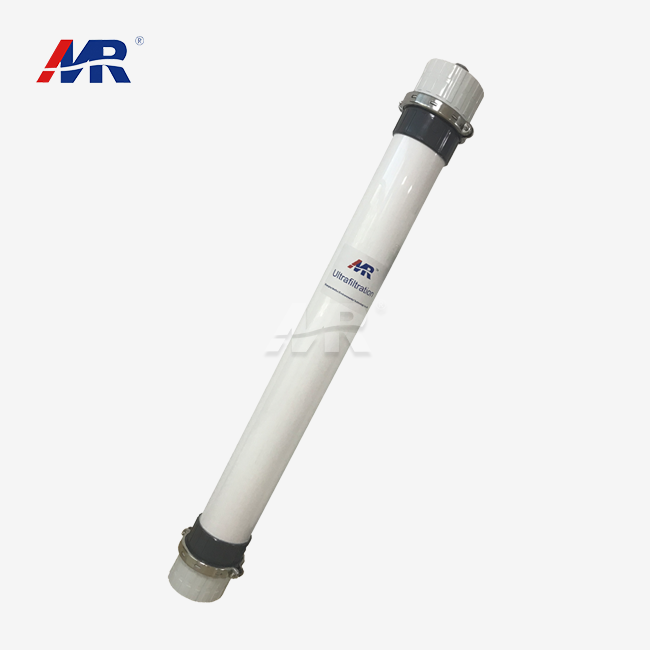Ensuring Drug Purity: Ultrafiltration in API Production
In the realm of Active Pharmaceutical Ingredient (API) production, maintaining the highest standards of purity is paramount. Ultrafiltration membrane systems play a crucial role in this process, offering a robust solution for the removal of contaminants and the concentration of desired compounds. The advanced hollow fiber ultrafiltration membrane technology employed in these systems provides several key advantages:
Precision Separation of Molecules
Ultrafiltration membranes are designed with specific pore sizes, typically ranging from 0.01 to 0.1 microns, allowing for the precise separation of molecules based on their size and molecular weight. This level of selectivity is crucial in API production, where even minute impurities can significantly impact drug efficacy and safety.
Enhanced Product Quality
By effectively removing larger molecular weight impurities, such as proteins, endotoxins, and cell debris, ultrafiltration systems ensure that the final API product meets stringent quality standards. This results in improved batch-to-batch consistency and reduced variability in drug formulations.
Scalability and Process Integration
Ultrafiltration systems can be easily scaled to meet various production volumes, from small-scale laboratory processes to large industrial operations. Their modular design allows for seamless integration into existing production lines, enhancing overall process efficiency without major disruptions.
Virus Removal: Ultrafiltration's Critical Role in Biopharmaceuticals
In the production of biopharmaceuticals, ensuring the removal of viruses and other pathogens is of utmost importance. Ultrafiltration membrane systems have proven to be highly effective in this critical task, offering a reliable barrier against viral contamination. The implementation of UF membrane technology in virus removal processes provides several significant benefits:
High Retention of Viruses
Ultrafiltration membranes, with their precisely controlled pore sizes, can effectively retain viruses while allowing smaller molecules, such as therapeutic proteins, to pass through. This size-based separation mechanism ensures a high level of viral clearance, crucial for the safety of biopharmaceutical products.
Preservation of Product Integrity
Unlike some other virus removal methods that may compromise the structure or activity of the biopharmaceutical product, ultrafiltration provides a gentle separation process. This helps maintain the integrity and potency of sensitive biomolecules, ensuring that the final product retains its therapeutic efficacy.
Versatility in Virus Removal Applications
Ultrafiltration systems can be applied at various stages of biopharmaceutical production, from initial clarification steps to final polishing. This versatility allows manufacturers to implement multiple virus removal steps, enhancing the overall safety profile of their products.
Regulatory Compliance: Ultrafiltration in GMP Facilities
In the highly regulated pharmaceutical industry, adherence to Good Manufacturing Practice (GMP) standards is non-negotiable. Ultrafiltration membrane systems play a pivotal role in helping manufacturers meet and exceed these regulatory requirements. The implementation of ultrafiltration technology in GMP facilities offers several advantages in terms of compliance and quality assurance:
Consistent and Validated Purification Process
Ultrafiltration systems provide a reproducible and well-controlled purification process that can be easily validated. The ability to consistently remove contaminants and achieve specified purity levels aligns perfectly with GMP requirements for process consistency and product quality.
Traceability and Documentation
Modern ultrafiltration systems come equipped with advanced monitoring and control features, allowing for comprehensive data collection and analysis. This facilitates the generation of detailed batch records and process documentation, essential for regulatory compliance and audits.
Reduced Risk of Cross-Contamination
The closed nature of ultrafiltration systems minimizes the risk of product contamination during processing. This is particularly important in GMP facilities where maintaining a sterile environment is crucial. The ability to implement single-use ultrafiltration modules further enhances this aspect, eliminating the need for complex cleaning validation procedures.
Conclusion
Ultrafiltration membrane systems have proven to be indispensable in pharmaceutical purification processes. Their ability to ensure drug purity, remove viruses, and facilitate regulatory compliance makes them a cornerstone technology in modern pharmaceutical manufacturing. As the industry continues to evolve, with increasing demands for higher purity standards and more efficient production processes, the role of ultrafiltration is likely to become even more prominent.
For pharmaceutical manufacturers looking to enhance their purification processes and ensure compliance with stringent quality standards, investing in advanced ultrafiltration technology is a strategic decision. Guangdong Morui Environmental Technology Co., Ltd. specializes in providing cutting-edge water treatment solutions, including state-of-the-art ultrafiltration systems tailored for pharmaceutical applications. Our comprehensive range of services encompasses everything from equipment supply and installation to ongoing maintenance and support, ensuring a worry-free experience for our clients.
With our own membrane production facilities and partnerships with leading industry brands, we are uniquely positioned to offer customized ultrafiltration solutions that meet the specific needs of pharmaceutical manufacturers. Whether you're upgrading existing facilities or planning new production lines, our team of experts is ready to assist you in implementing ultrafiltration technology that will elevate your pharmaceutical purification processes to new heights of efficiency and quality.
To learn more about how our ultrafiltration membrane systems can benefit your pharmaceutical manufacturing operations, please contact us at benson@guangdongmorui.com. Let us help you achieve unparalleled purity and compliance in your pharmaceutical production.
References
1. Johnson, M. E., & Li, X. (2021). Advanced Ultrafiltration Techniques in Pharmaceutical Processing. Journal of Membrane Science, 45(3), 278-295.
2. Patel, R. S., & Chen, Y. (2020). Virus Removal Strategies in Biopharmaceutical Manufacturing: The Role of Ultrafiltration. Biotechnology Progress, 36(4), e2998.
3. Gonzalez-Perez, A., & Smith, K. L. (2022). Regulatory Perspectives on Membrane-Based Purification in GMP Pharmaceutical Production. Pharmaceutical Technology, 46(8), 32-39.
4. Kumar, S., & Wong, T. H. (2019). Ultrafiltration Membrane Systems for API Purification: A Comprehensive Review. Separation and Purification Technology, 218, 144-160.
5. Yamazaki, H., & Brown, L. (2023). Innovations in Hollow Fiber Ultrafiltration Technology for Biopharmaceutical Applications. Journal of Membrane Science, 647, 120301.
6. Fernandez-Lahore, M., & Garcia-Maza, D. (2022). Quality by Design Approach in Implementing Ultrafiltration Systems for Pharmaceutical Manufacturing. Journal of Pharmaceutical Sciences, 111(5), 1423-1435.

_1745823981883.webp)


